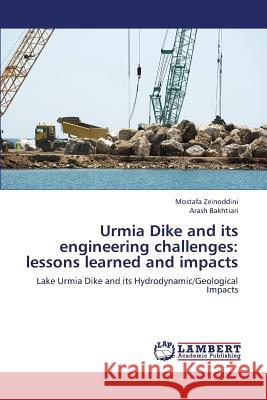Urmia Dike and Its Engineering Challenges: Lessons Learned and Impacts » książka
Urmia Dike and Its Engineering Challenges: Lessons Learned and Impacts
ISBN-13: 9783659330308 / Angielski / Miękka / 2013 / 200 str.
This book is devoted to an engineering case study on an important, yet problematic, sea dike which crosses the Lake Urmia in Iran. This dike-type causeway appears to be an interesting case for studying the dike's long-term behavior and their hydrodynamic/geological effects. The Lake Urmia dike is around 14 km long and begun being constructed in 1979. It was designed to provide road and railway access crosswise the lake. It virtually divided the lake in two smaller northern and southern lakes. Lake Urmia is itself a very sensitive hyper-saline aquatic body. This shallow marine ecosystem is the third largest salt lake on earth. It is considered to be one of the biggest natural habitats of a unique multicellular organism, Artemia Urmiana.
This book is devoted to an engineering case study on an important, yet problematic, sea dike which crosses the Lake Urmia in Iran. This dike-type causeway appears to be an interesting case for studying the dikes long-term behavior and their hydrodynamic/geological effects. The Lake Urmia dike is around 14 km long and begun being constructed in 1979. It was designed to provide road and railway access crosswise the lake. It virtually divided the lake in two smaller northern and southern lakes. Lake Urmia is itself a very sensitive hyper-saline aquatic body. This shallow marine ecosystem is the third largest salt lake on earth. It is considered to be one of the biggest natural habitats of a unique multicellular organism, Artemia Urmiana.











